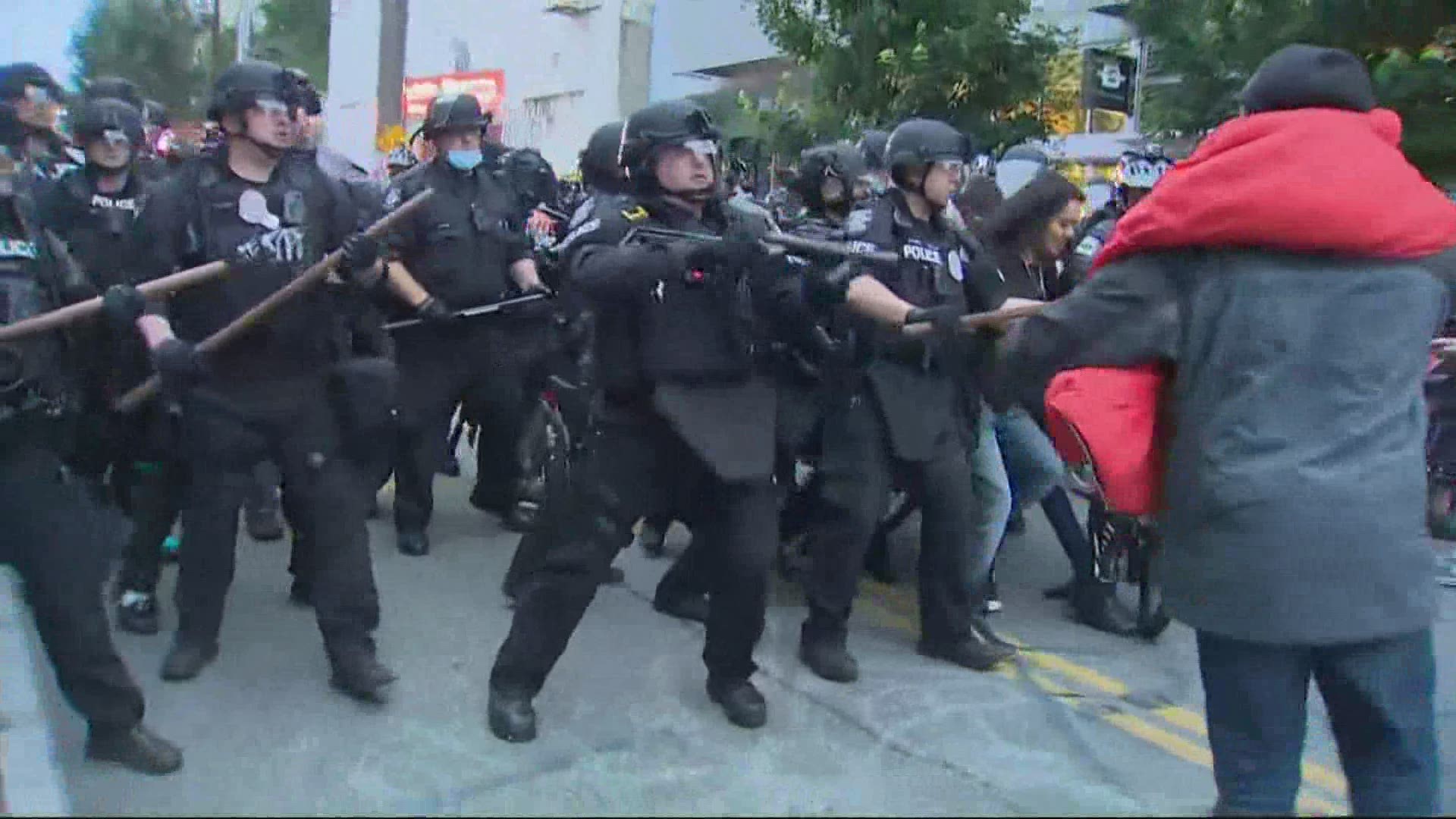PORTLAND, Ore. — It has been nearly a year of demonstrations and conflict over racial justice and policing in America. Portland has often been the center of attention. And there has been unrest in Seattle too, including violent confrontations between people in the crowd and police.
Now state legislators in both Oregon and Washington are on the verge of changing how law enforcement do their job through a series of bills.
“This is trying to address these things in a way that is going to be effective for everyone,” said Oregon state Sen. Lew Frederick. Frederick represents North and Northeast Portland. He is pleased there is some bipartisan support to get things done.
“Everyone got to work together to say we want to see a safe community. Everyone wants to feel safe wherever they are, and we need to make sure that's the case for everyone, not just a few people,” said Frederik, who, along with others in the BIPOC caucus, brought roughly 40 bills to the table centered around police reform.
With the likely outcome that some of the measures become Oregon law, they could restrict the use of chemical and impact devices in crowd control, require officers to report misconduct by other officers, require officer training in airway and circulatory anatomy and certification in CPR and establish a public database for misconduct and discipline.
Michaeal Selvaggio is lobbyist for the Oregon Coalition of Police and Sheriffs. He says the organization, formed in 2014, has a history of pushing for improvements.
“We have stood side-by-side with a lot of the reform advocates, and I know that surprises some people. We agree on much more than we disagree on, and what we disagree on is usually details,” said Selvaggio.
In Southwest Washington, the focus has been on the Clark County Sheriff's Office. Deputies have been involved in two shootings of Black men since November. While the investigation process is still playing out, the Washington state legislature is moving forward.
RELATED: Forest Grove family kept in the dark for days after officer arrested in attack of their home
Measures there would restrict the use of tear gas during riots in prisons or jails, ban chokeholds, neck restraints and no-knock warrants, limit high-speed pursuits and restrict the purchase of military equipment.
The Washington Association of Sheriffs and Police Chiefs appears to be mostly agreeable, but thinks a total ban on chokeholds would have unintended consequences.
In a letter to state senators, the association wrote, "The prohibition on chokeholds under any circumstance establishes a public policy that an officer should discharge their firearm or use another form of deadly force against a person – even when a chokehold could have been applied."
In the meantime, millions of people across the country are watching the trial of former police officer Derek Chauvin in Minneapolis, hoping for an end to policies that keep systemic racism alive.
“Exactly, and recognizing that that is in fact one of the problems that we have in our culture, in our society, in our state, and in our city,” said Portland legislator Frederick.

